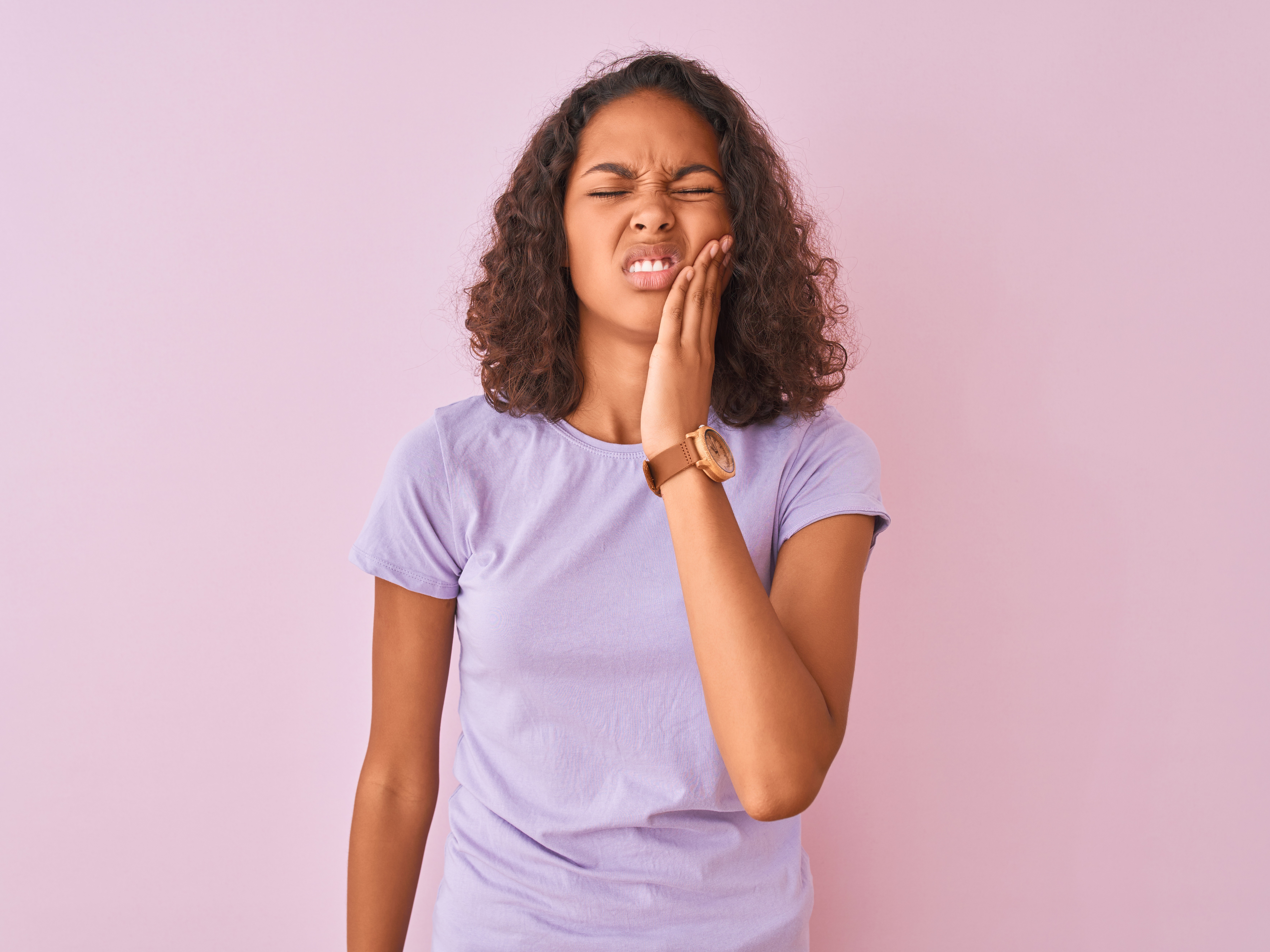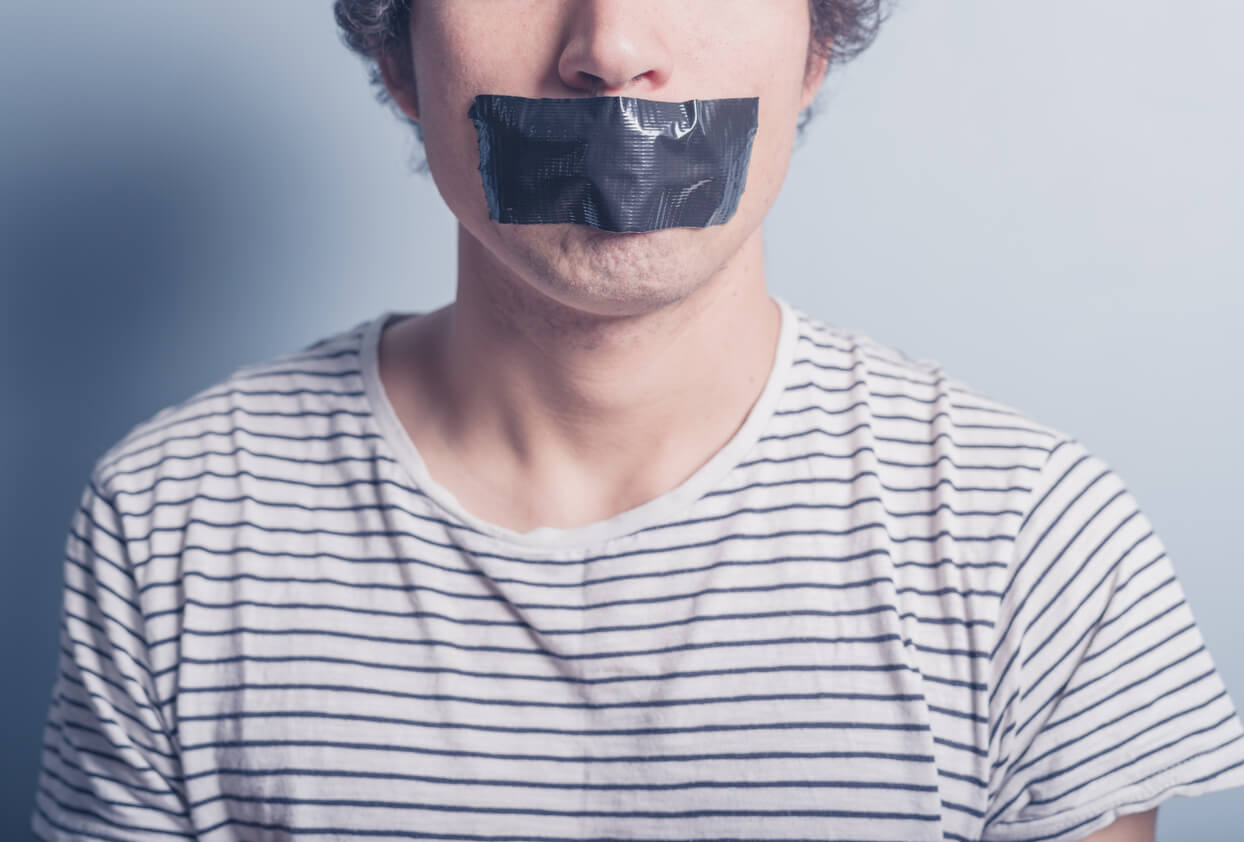Why Do I Have Bad Breath? Halitosis Causes and Treatments
Just about everyone on the planet has experienced bad breath at some point in their lives. When you eat garlicky foods, forget to brush your teeth, or drink a cup of coffee, the odor coming from your mouth may be less than pleasant.
But for some people, bad breath (known medically as halitosis) isn’t just a once-in-a-while occurrence - it’s an everyday issue that can be embarrassing, anxiety-inducing, and harmful to oral health.
If you’re wondering how to tell if your bad breath is halitosis or not, or if you want to know what may be causing it, then you’re in luck. In this article, we’ll brush up on some common causes of halitosis. We’ll also discuss some of the treatment options for halitosis, including home remedies and medical treatments.
What is halitosis?
Halitosis, commonly known as bad breath, is a condition that results in an unpleasant smell when you exhale from your mouth.
Halitosis affects about 30% of people, and it’s more than just occasional morning breath or the result of eating something with onions. It's a persistent odor that can signal poor dental hygiene or underlying health issues. Because of this, bad breath “quick fixes” like mints and chewing gum are only short-term solutions to halitosis.
Halitosis odor is caused by bacteria that break down and release volatile sulfur compounds (VSCs). As their name suggests, VSCs smell like sulfur (the smell of rotten eggs, gas, and other unpleasant aromas).
The bacteria that cause halitosis can build up as a result of insufficient flossing and brushing, leftover food, oral infections, certain medical conditions, and more. Luckily, most cases of halitosis can be improved with proper oral hygiene, dietary changes, and in some instances, medical treatment.
How to know if you have halitosis
A common way to test for bad breath is to lick the back of your hand or a spoon, wait 10 seconds, and then smell it. If the smell is unpleasant, then your breath odor probably is, too. However, there are some flaws in this method. After all, assessing the severity of your bad breath using utensils isn’t exactly the most scientific approach.
You can also purchase at-home oral microbiome test kits online. These typically range in price from $100-$150, and can check for tongue-coating fungi, gut-related bacteria, gum disease-causing bacteria and other microbes that cause bad breath.
If you’re unsure that you have halitosis, you may want to consider a BANA test (microbial-enzymatic N-benzoyl-DL-arginine-2-napthylamide). For this test, a sample of saliva, dental plaque, or a tongue swab is analyzed for certain enzymes. The presence of these enzymes indicates that the bacteria that cause bad breath are present. BANA tests can be done at the dentist or you can buy home testing strips and kits online.
Halitosis is normally considered a cosmetic issue by insurance companies, so related treatment and tests are typically not covered. Because of this, it is best to call your dentist and insurance company ahead of time to get an idea of cost and coverage.
Common causes of halitosis
It’s important to get to the root of what’s causing your bad breath in the first place. This is because bad breath can sometimes indicate more serious health conditions. Here are some of the most common reasons why people develop halitosis.
Poor dental hygieneThe most common cause of bad breath is not cleaning your teeth, gums, tongue or dentures properly.
This can lead to food and plaque buildup on your teeth and tongue, causing tooth decay and gum diseases such as gingivitis and periodontitis. The inflammation and bacterial growth from these conditions is the most common cause of halitosis.
Oral infectionsGum infections like periodontal disease or gingivitis are typically a result of bacterial buildup on the teeth and gums. Other oral infections, such as dental abscesses and cavities, are caused by bacterial growth as well. As mentioned above, these bacteria can feed on food particles and tissues, producing smelly VSCs.
Dry mouthDry mouth, medically known as xerostomia, occurs when the salivary glands in your mouth aren’t producing enough saliva (spit). It can be caused by dehydration, certain medications or diseases, breathing often through your mouth instead of your nose (mouth-breathing), and even tobacco use. Saliva protects your teeth and gums from bacteria and helps wash away stray pieces of food and debris. If you don’t have enough saliva in your mouth, you’re more susceptible to bad breath.
Health conditionsMedical conditions such as acid reflux (GERD), diabetes, kidney disease, or respiratory illnesses can cause breath odor. For example, diabetes can raise your blood sugar levels, creating an environment where yeast and bacteria thrive more easily. The growth from those organisms then results in bad breath.
Likewise, kidneys that aren’t functioning properly often struggle to filter urea (a urine byproduct) from your blood, which can cause an ammonia-like odor to come from your mouth.
Acid reflux can cause tooth erosion that leads to bacteria growth, and it can also cause a backup of smelly undigested food in your stomach or esophagus. Sinus or throat infections can also cause bad breath, since the infected mucus that your body produces contains odor-causing bacteria.
Alcohol and tobacco productsHabits like smoking and alcohol consumption can snowball into serious oral health issues, including halitosis.
Smoking can result in dry mouth, gum disease, and poor dental hygiene - all of which, as we’ve previously discussed, can lead to bad breath. The same goes for alcoholic drinks: Your body converts the alcohol into acetic acid, which leaves a sour, vinegar-like smell lingering in your mouth. Many alcoholic drinks also contain sugar, which can lead to tooth decay (and consequently, bad breath).
Certain foodsFoods with strong odors, such as garlic, onions, and spices, can leave your breath smelling unpleasant. Although your body eventually passes these foods from your system, eating them consistently can contribute to bad breath - especially if you’re not taking proper oral hygiene measures like regular brushing and flossing.
MedicationsHalitosis can be a result of medications. Bad breath can be a side effect of the following:
- Amphetamines
- Anticholinergics
- Antidepressants
- Antifungals
- Antihistamines
- Decongestants
- Diuretics
- Steroids
- Sedatives
- Certain supplements, such as vitamin B3 or Omega-3 fish oil
If you’re on any of these medications and are experiencing halitosis, speak with your healthcare provider to see if medication adjustments or additional treatments can help.
Can you get rid of halitosis?
In most cases, halitosis is very treatable. However, it’s important to make sure that you’ve identified the root causes of the odor before attempting to get rid of it. Poor oral hygiene, oral infections, systemic conditions and certain lifestyle habits can all cause halitosis. These issues each require different treatments to effectively treat bad breath.
While halitosis can be a persistent and embarrassing problem, it can be treated successfully in most cases. It just takes the right combination of hygiene, medical, and lifestyle interventions!
Effective Treatments for Halitosis
There are a number of medically-backed treatments for getting rid of bad mouth odor. You may want to consider some of the following strategies to improve your oral health and freshen your breath:
Practice proper oral hygieneData shows that using mouthwash and cleaning your tongue in addition to toothbrushing and flossing can help get rid of bad breath and odor-causing bacteria. In fact, one 2015 study found that adding tongue cleaning to your toothbrushing regime can help to reduce VSCs and bad breath by up to 80%!
The American Dental Association recommends brushing your teeth at least twice a day for at least 2 minutes with fluoride toothpaste. When you clean your tongue, use either a tongue scraper or a toothbrush, and make sure not to forget the back of the tongue. Last but not least, make sure to clean oral appliances like dentures or retainers to get rid of odor-causing bacteria.
It’s also important to schedule regular visits to the dentist for cleanings and check-ups.
Drink plenty of waterIt goes without saying that it’s important to stay hydrated. However, drinking water along with the rest of your oral hygiene routine can also help keep bad breath at bay.
A 2016 study from the International Journal of Dental Hygiene found that drinking or rinsing with a glass of water in the morning helped to reduce up to 60% of the VSCs and other substances that cause bad breath.
Reduce alcohol and tobacco product consumptionSmoking or using smokeless tobacco products like dip or chew can cause gum disease, tooth decay, oral cancer and countless other health issues. The same goes for alcoholic beverages, which can cause dry mouth, acid reflux, liver disease, and other conditions that result in halitosis. Quitting or reducing your tobacco product and alcohol consumption can significantly reduce these risks.
Be mindful of your dietary choicesCleaning your teeth thoroughly after consuming pungent foods like garlic and onion can significantly improve breath quality.
It’s also important to remember that certain foods can cause oral decay and erosion over time. Sodas, sour candies, and other acidic foods and beverages can eat away at teeth enamel, allowing bacteria (and halitosis) to thrive. Reducing your intake of these foods can help improve your oral health in the long run.
Talk to your provider about medicationDepending on the cause of your halitosis, your dentist or healthcare provider may recommend or prescribe an OTC or prescription medication to help alleviate the issue.
If your halitosis is a result of dry mouth, your healthcare provider or dentist may recommend artificial saliva or a medicated mouth rinse to keep your mouth moist.
In instances where your bad breath is a result of gum disease or an infection, your dentist or periodontist will likely recommend a medicated mouth rinse along with a thorough cleaning to get rid of plaque buildup.
If your bad breath is due to conditions like diabetes or gastroesophageal reflux disease (GERD), your provider will probably prescribe a medication or recommend alternative treatments to help with your halitosis.
In any case, it’s important to speak with a healthcare professional who can determine the cause of the odor.
When to see a dentist about bad breath
If you’ve noticed that your bad breath is persistent, or if you’re feeling embarrassed or anxious about your bad breath, it may be time to talk to a dentist for medical advice. If you’re in need of a consult, Sesame also offers affordable, same-day online dental consults.
As mentioned above, bad breath can be a sign of various issues, ranging from cavities and gum disease to abscesses and tooth fractures. All of these issues require professional evaluation and treatment to prevent further complications. Remember, early intervention can often prevent more serious health issues - and keep every breath a fresh one!









